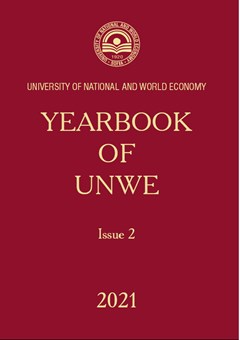The Future of the European Union After Brexit
Author: Todor Kondarev
Abstract
The article presents the changes that have taken place since Britain’s decision to leave the Union. This process, which began with the organization of the Referendum in 2016, had a negative impact on both the EU’s domestic and foreign policy, as well as its micro- and macroeconomics. Doubts have been raised about the danger of a total or partial disintegration of the Community, as well as the possibility of the future EU development at several speeds. The question is whether, after Brexit, the gap in living standards between Member States and regions will begin to narrow or will there continue to be a confrontation between small/large in territory and poor/rich in economic development member states. The weakening of the European Union’s political influence worldwide with regard to international organizations (UN, G7, G20, Commonwealth of Nations – composed of 53 English-speaking Member States supporting the Queen of England, etc.) has been noted. The strengthening of Euroscepticism among the citizens of Europe has been noted, as well as the danger of fatigue before the deepening of European integration and the possibility of future EU enlargements with new member states (for example, with the countries of the Western Balkans).
JEL: D72, F50, F59, P16, P48

